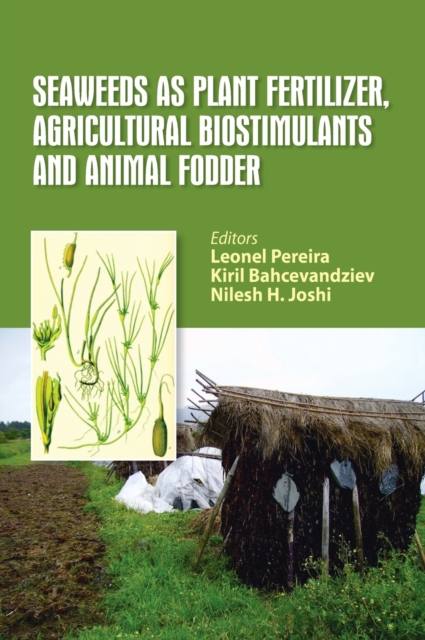
Seaweeds as Plant Fertilizer, Agricultural Biostimulants and Animal Fodder Hardback
Edited by Leonel (University of Coimbra, Portugal) Pereira, Kiril (Coimbra Agriculture College, Polytechnic Institute of Coimbra, Portugal) Bahcevandziev, Nilesh H. Joshi
Hardback
Description
The main effects of Seaweed extracts (Ascophyllum, Fucus, Sargassum, Saccorhiza, Laminaria, Gelidium and others), when used as agricultural fertilizers, are better seed germination and higher quality fruit production, with longer shelf life; better use of soil nutrients; more productive crops and plants with greater resistance to unfavorable environmental conditions. Algae also have a long history of use as animal feed.
They have a highly variable composition depending on the species, collection season and habitat, and on external conditions such as water temperature, light intensity and nutrient concentration in water. In relation to ruminal fermentation, a high variability of the digestibility values ??was found among seaweed species and cannot be attributed only to the composition of different nutrients of the algae.
The role of marine algae for reduction of methane production is discussed with particular emphasis on novel algae-based feed strategies that target minimal methane emissions without affecting the functionality of the microbiota and overall animal productivity. Key Features:Sustainable AgricultureNatural FeedingNutrients Liquid SeaweedAgricultural BiostimulantsNatural Pesticides
Information
-
Available to Order - This title is available to order, with delivery expected within 2 weeks
- Format:Hardback
- Pages:224 pages, 22 Tables, black and white; 14 Illustrations, color; 18 Illustrations, black and white
- Publisher:Taylor & Francis Ltd
- Publication Date:25/10/2019
- Category:
- ISBN:9781138597068
Information
-
Available to Order - This title is available to order, with delivery expected within 2 weeks
- Format:Hardback
- Pages:224 pages, 22 Tables, black and white; 14 Illustrations, color; 18 Illustrations, black and white
- Publisher:Taylor & Francis Ltd
- Publication Date:25/10/2019
- Category:
- ISBN:9781138597068






